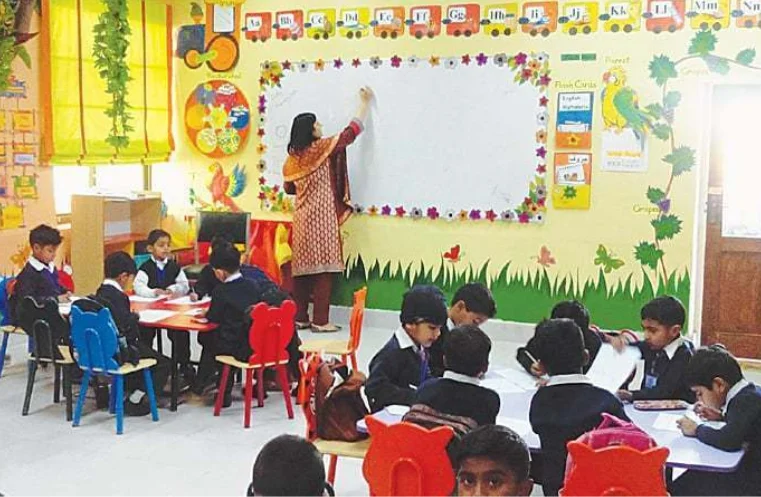Islamabad, Jan 15: In a significant move aimed at safeguarding the integrity of educational services in Sindh, the Secretary of College Education, Asif Akram, has issued a strict directive prohibiting government college teachers from engaging in private tutoring or teaching at coaching centers during official working hours.
This decision follows concerns raised over some teachers neglecting their primary responsibilities to prioritize private tutoring, ultimately affecting the academic environment.
A formal notice has been sent to all college principals across the province, urging them to ensure that teachers fulfill their duties without interference from private engagements. The notice emphasizes that teachers, entrusted with the vital role of shaping students’ futures, must demonstrate professionalism by maintaining focus on their official responsibilities during work hours. The practice of using government time for personal profit is seen as not only unethical but also unprofessional, undermining the quality of education and the trust placed in educators.
Such teachers will be subject to disciplinary proceedings under the Sindh Civil Servants (Efficiency and Discipline) Rules, 1973. This includes potential penalties, which may extend to suspension or termination, depending on the severity of the violation.
New Zealand Announces Squad for Champions Trophy
Additionally, principals who fail to enforce compliance with this directive will be held responsible for any lapses in ensuring the professional conduct of their teaching staff. The government aims to create a more focused academic atmosphere where students’ learning is the foremost priority. By reinforcing this policy, the authorities hope to restore the proper balance between academic duties and personal engagements, ensuring that educators dedicate their time and expertise to fostering the next generation of leaders and professionals.
This measure reflects a growing commitment to raising the standards of education in Sindh and holding educators accountable for their roles in shaping the future of the students they serve.
Read more: Bad News for Teachers in Sindh as Govt Reverses Key Decision









